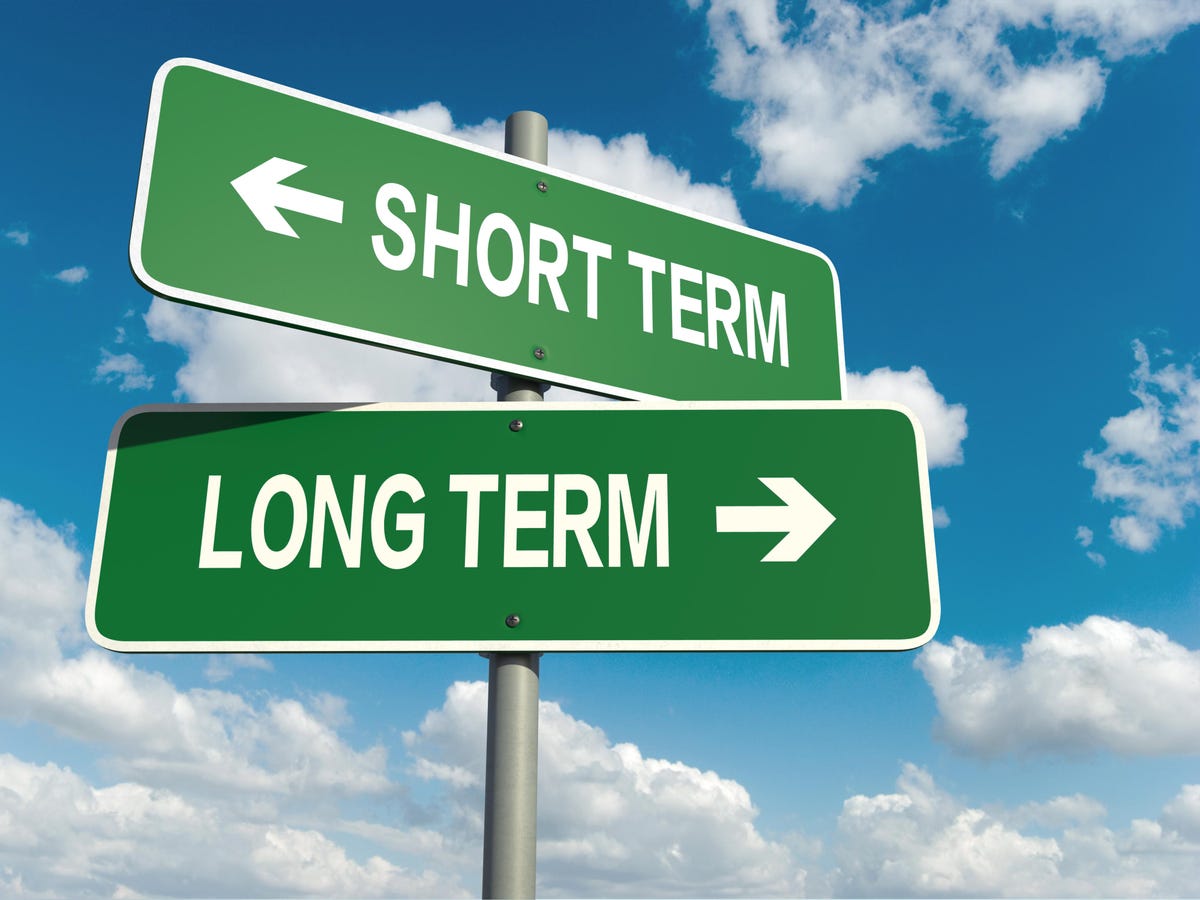Long-Term Thinking in a Short-Term World
This letter is a continuation of one from last year – “Is the Grass Greener?” The issues surrounding higher than normal turnover across all industries are complex and have not resolved themselves. We want to share with our employees and clients how some of the values that make up our culture define how we’re thinking about it and dealing with it.
At a greater frequency, people tend to jump ship for a pay raise or the allure of working from home; instead of just sticking it out for longer than a couple years at a job and trying to earn that same raise the old fashion way – through time and experience.
It’s been said – “You can’t build a long-term future on short term thinking.” Now, I get it… sometimes it’s right for someone to move on when it’s not a good fit and I’m not speaking to those scenarios. However, if you decide to leave your employer for higher pay and no other reason; well, I think that’s potentially short sighted. Unfortunately, our society and culture reward a short-term mindset. In my opinion, the lack of long-term thinking and getting distracted by chasing a dollar is detrimental to people both personally and professionally.
With technological advances bringing answers, information, and entertainment to our fingertips, we’ve lost the skill of patience and the benefits that come from waiting and earning. Some of us remember when we had to do a book report or write a paper. We actually had to drive to a library and seek out information from multiple sources – physical books! It took time and patience.
Now, we all just Google whatever answer we’re looking for and it’s there. It’s wonderful. We’ve become trained to expect instant gratification. If any time passes or we don’t have our phone in our hands to soothe our boredom; we get anxious, irritated, and look for the quickest hit of dopamine within grasp.
That has bled over to all aspects of our lives, including work. It has become common place to choose instant gratification of a new job with higher pay versus having some patience and putting in the effort and time toward building a career at one company. I’d argue the latter strategy has a higher probability of bringing more money and satisfaction in the end.
Just like the compounding interest of an investment can create magical returns over time; I think job skills and knowledge compound inside an organization to create value for yourself. Each company has its own culture, processes, clients, and relationships and every time you leave a company; you lose all the organizational value you had built up and start over at zero. When we allow time to work through our careers, relationships, and skills; forces are at work that can’t be quantified, formulated, or manufactured. They are intangible and enormously powerful.
At M&S, our culture and values require a long-term mindset.
It permeates how we deal with our clients, our employees, each other, and the future of the company itself. We take long-term thinking so seriously that our entire ownership structure is set up to perpetuate the existence of a privately held company for as long as possible. We definitely could have hit the easy button and thought about the short-term benefits years ago and sold the company or taken on private equity (like many others) to boost growth. There were good short term rewards for those who chose to do so. Trust me, the path we chose is not easy and comes with its own challenges, but we believe it’s a better choice for all the stakeholders involved. Those stakeholders would be our employees, our clients, our vendors, our community, and our shareholders.
Additionally, there are benefits to longevity and lessons that come from stick-to-itiveness that you don’t get from instant rewards. For example, if you have been at a company for a year or two and leave for more money; you don’t get the same satisfaction of “earning” that increase as you would have if you just stuck it out. Or, when you have trouble working with a team or coworker, instead of just leaving because it’s hard to deal with some people; you learn how to work through problems and relationships. You gain maturity and earn the respect of your peers by learning how to work through difficult circumstances with other people. These life lessons and skills don’t happen overnight or even in a couple of years. It takes time.
Learning “commitment” is another intangible skill that can only be built over time. When times get tough are you someone who can be counted on to dig deep, sit through hard conversations, and work hard for yourself and your team? Or, do you run? We all want to be known as someone who can be counted on instead of someone who easily quits. Quitting is not something you want to get good at or be known for.
Here’s a bulletin – people are a mess! We all have unique personalities with weird quirks. All of us! You can’t run from one place to the other thinking it will solve your people problems. Wherever you go, you’re going to be around other messy people. I just so happen to believe we have the most awesome collection of messy people to work with, so why not stay here, or join us; and learn how to build your skills and career.
One of the main reasons we’re so focused on the long term is the positive effect we believe it has on our clients and our relationship with them. Our largest client is also the client we’ve had for longest period of time. That doesn’t happen unless we treat them as a partner and make decisions that positively affect their experience with us or the design product we provide. Whether it be personnel, operations, or financial, with every decision we make, we ask ourselves – “How does that affect the company as a whole, our employees, and our clients?” Even if it would benefit the company short term and there is a question that it could negatively affect our clients – we don’t do it.
We understand that this long-term mindset can sometimes feel like it’s not what might be best for any one person at a given time. One person wants more money. Another wants to work from home. Our next thought is – How does that affect everyone else? How does that affect the client? How does it affect the entire team?
This mindset takes humility and other centeredness, instead of focusing on what one’s self can get out of the company. Which leads to my next point – we strongly believe that this company is here so that we can build something special that is much bigger than any one of us. We want it to be a place that provides and helps all involved. We are intentionally making decisions every day that affect those stakeholders, with the long term in mind. This company is not about any one person’s achievements but rather what we can accomplish as a team. WE ARE BETTER TOGETHER. Those that thrive here and frankly love it here – are those that want to be a part of something bigger than themselves and see the benefits of doing so.
I’ll end with a quote from one of the greatest basketball coaches to have ever lived:
“Good things take time, as they should. We shouldn’t expect good things to happen overnight. Actually, getting things too easily or too soon can cheapen the outcome.” – John Wooden 10-time NCAA Basketball Coach.

